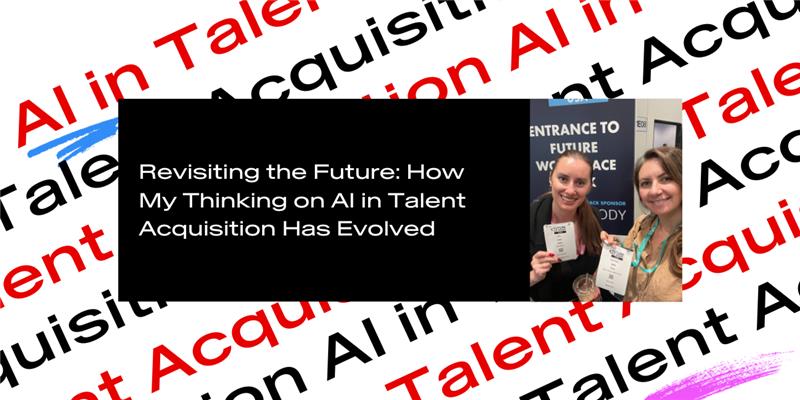Revisiting the Future: How My Thinking on AI in Talent Acquisition Has Evolved

by Jackie Carow| Published on June 23rd, 2025
Back in March 2025, I was featured in The Future of Talent Acquisition & Recruitment Market Study by the Intelligent Enterprise Leaders Alliance alongside some of the industry’s top voices. As I revisit the insights shared, it’s interesting to reflect on how certain trends and technologies have continued to shape and shift our industry in just a matter of months.
AI-automation is here to stay, but it needs a people-first view
It feels like every day there is a new AI-powered tool or AI-enabled product to make the sourcing process more efficient or the candidate experience more personalized. While some of these may be white noise, it’s hard to ignore the fact that AI is fundamentally changing the talent landscape and the opportunities that exist within our workplaces. Not only have AI related degrees doubled since 2010, but it’s anticipated that 23% of jobs globally are projected to transform in just three short years. The CEO of Anthropic said AI could wipe out half of traditional entry-level white-collar jobs and spike unemployment by up to 20% in the next 1-5 years. There’s no doubt that AI automation in Talent Acquisition is here to stay and the speed it’s changing our industry is – for lack of a better word – completely unprecedented.
While AI brings unimaginable benefits, we know some recruitment teams are hesitant to engage with it because of the challenges it presents around data privacy and more specifically bias. In an article titled AI Won’t Wait for Your Ethics author Massella Dukuly explores how more diverse users, specifically women and people of color, need to get involved in utilizing AI in order to shape the output. That’s the best way to create AI systems that remove unconscious biases because the tools learn from the humans that use them
Another audience this could significantly impact is the Neurodivergent community. While there have been studies showing how anti-neurodiversity biases are programmed into AI, if used appropriately AI has the potential to break down barriers in the conventional recruitment process that prohibit neurodivergent individuals from applying for roles. A great example of this is Microsoft’s partnership with Mentra to create an AI-driven job-matching platform based on cognitive strengths rather than traditional performance metrics. They’ve seen a 97% retention rate for employees placed through the program.
Reflecting on these insights, it’s clear that the future of Talent Acquisition will be shaped by adaptability and agility. AI has its limitations, in fact the AI we’re seeing now is actually the worst version it will ever be, but organizations that understand how to anchor AI in humanity and use it to serve their people will be the ones that truly thrive.
I’d love to hear your thoughts. How is your team approaching AI in recruitment? Are you seeing your people engage or are they nervous to leverage it? Let’s keep the conversation going – drop a comment, share your experiences, or connect with me directly.
